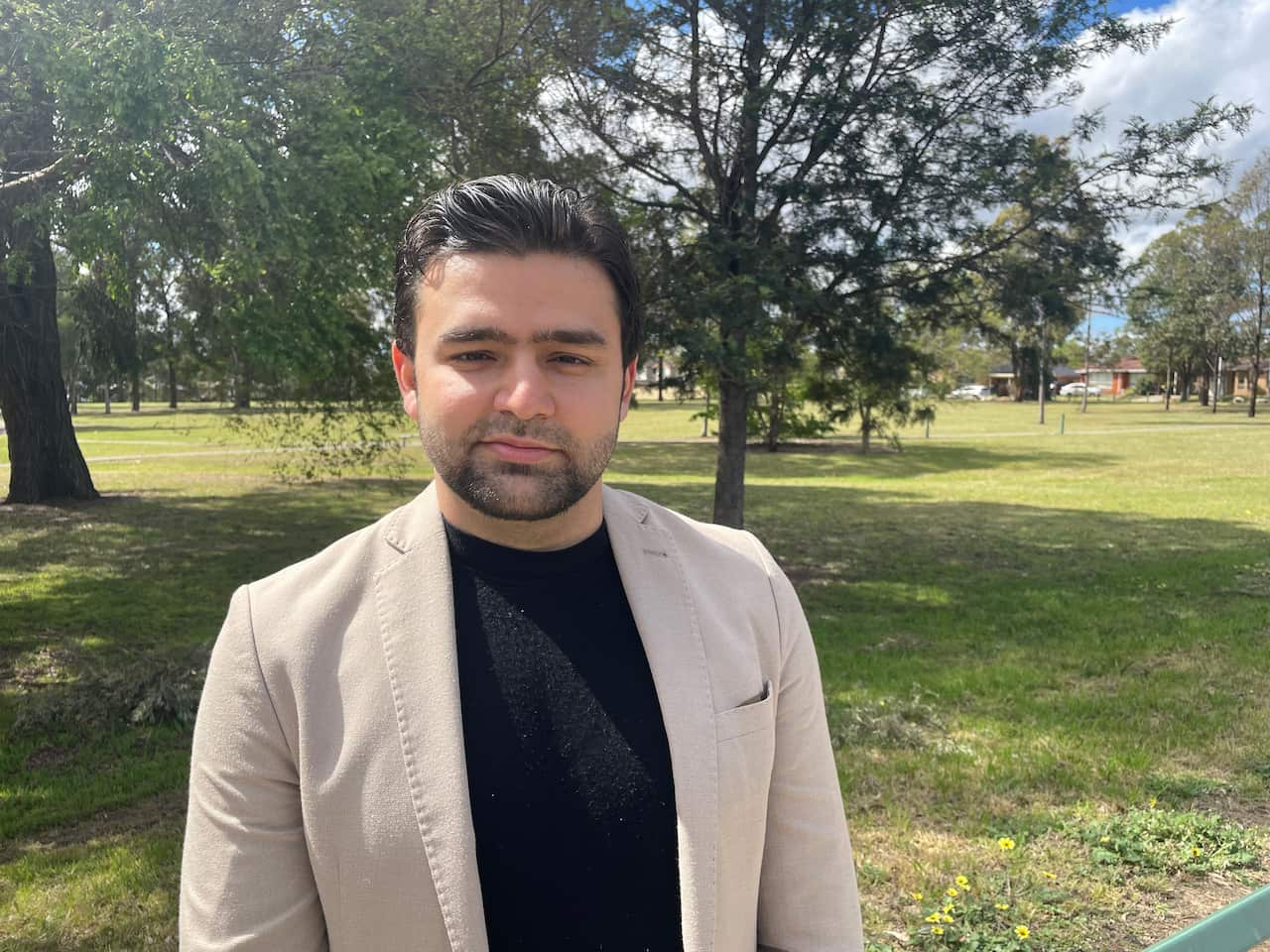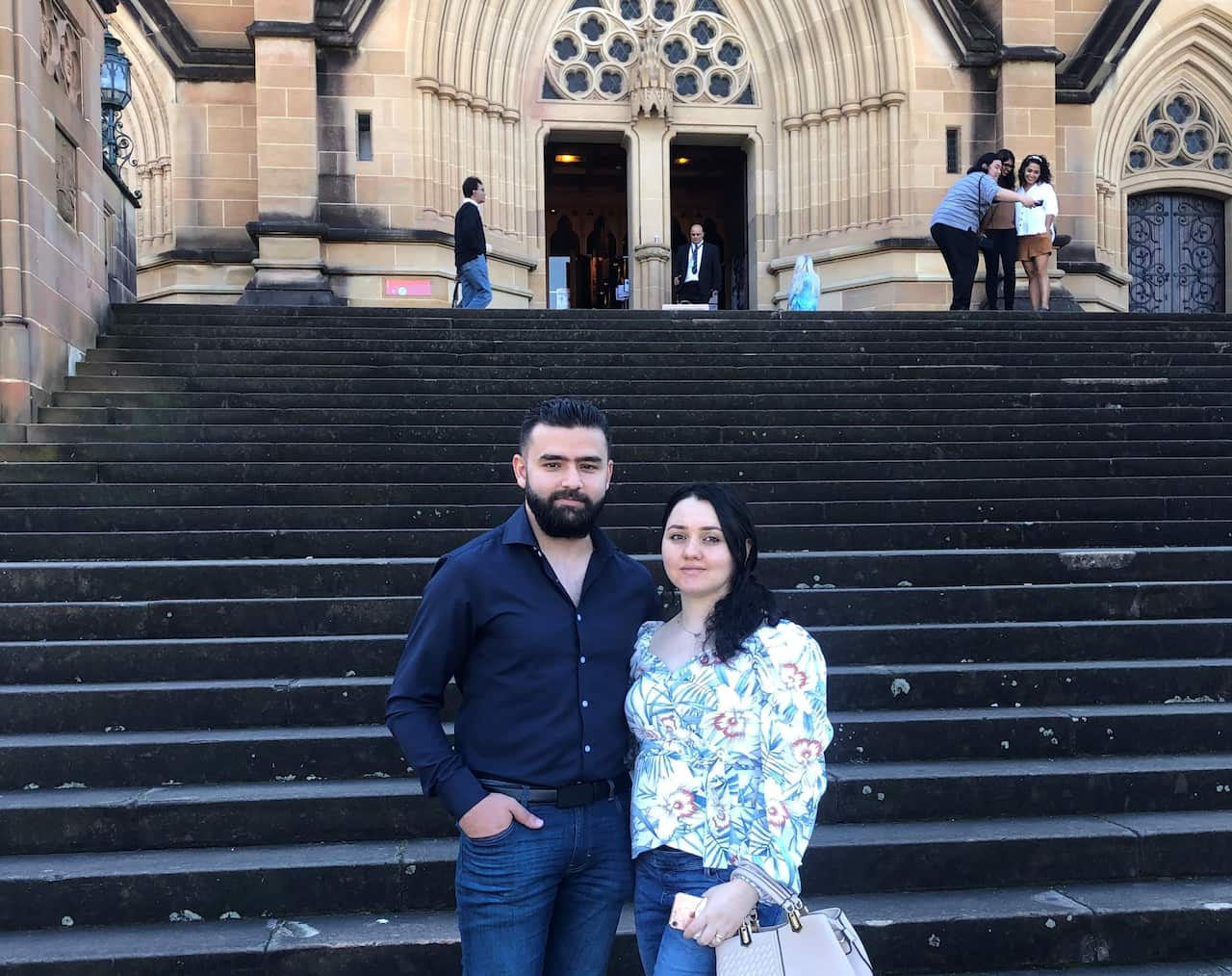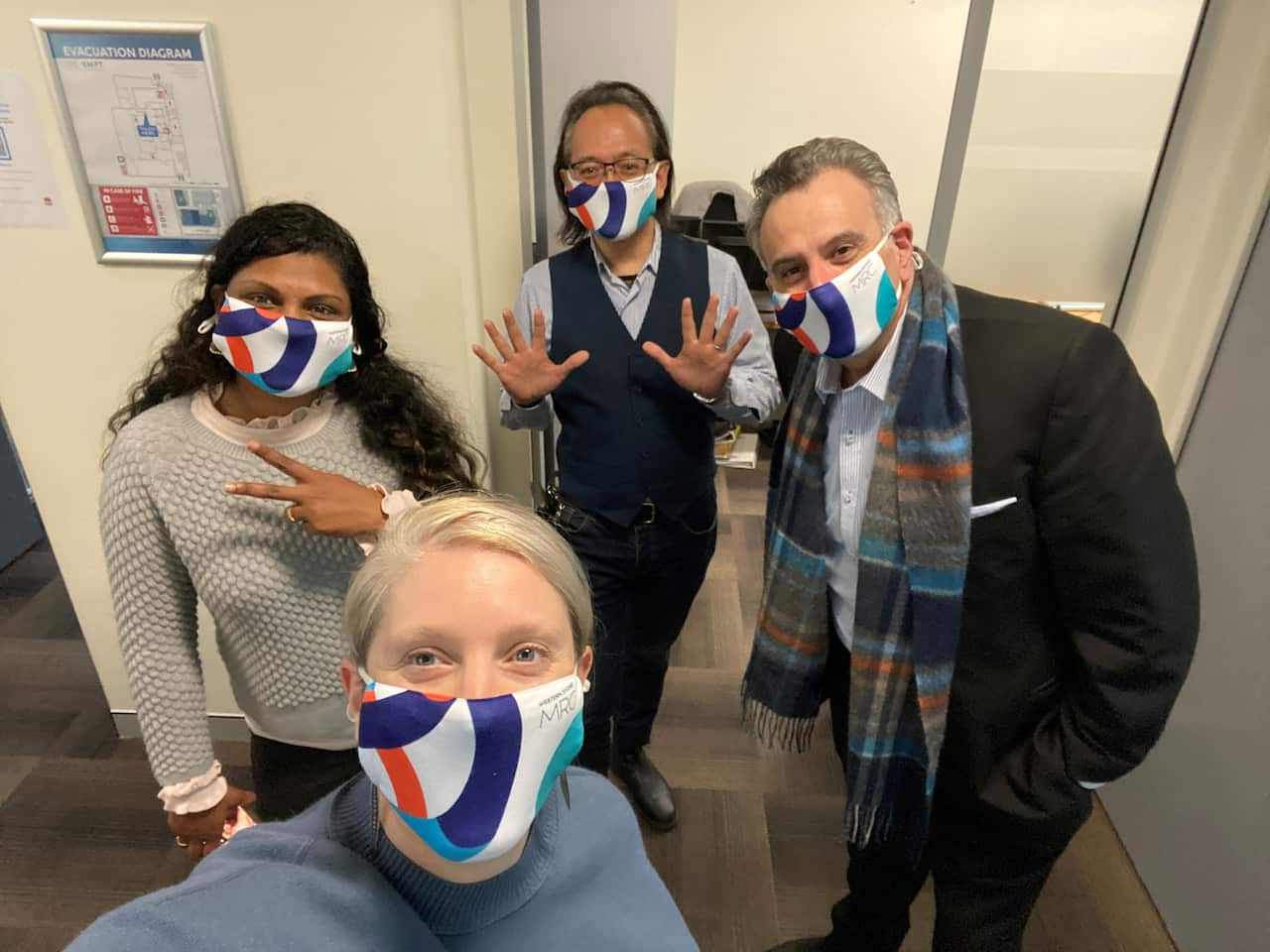Fadi Albehnonissan became an Australian citizen and a father virtually at the same time.
He attended his citizenship ceremony in the most unconventional of ways recently, joined by his wife and newborn daughter, Christie, in the maternity ward at Liverpool Hospital, Sydney.
The 27-year-old refugee from Iraq says he overcame many hurdles to reach this point in his life.

He still remembers when a bus carrying Christian students to the University of Mosul was attacked. He was in high school at the time, with aspirations to one day attend that university.
“Just imagine, you’re in Year 10 and you want to become something at university, and you see such things happen around you. You won’t be able to make those dreams come true,” he tells SBS News.
But Fadi persisted and joined the university two years later.
“It was very normal at university to hear bombs, hear attacks, hear guns outside.”
But when Mosul fell to the self-proclaimed Islamic State in 2014, Fadi and his family were given three options: convert to Islam, pay ‘jizya’ or a non-Muslim tax, or forfeit their possessions and leave the city.
Eventually, he fled Iraq to Turkey, living there as a refugee for two years until he was granted a visa to come to Australia.
Virtual citizenship ceremonies
Five years later and settled into his life in Western Sydney, Fadi became one of more than 1,900 people granted citizenship in his LGA.
"I don’t consider myself a refugee anymore but an Australian. I want to be able to give back to a community that has given me so much," he says.
And he says despite doing the ceremony online, and following his daughter's birth, he says the specialness of the occasion was not lost on him.
“The moment you say the pledge, you feel every word in your heart.”

Liverpool City Council introduced virtual ceremonies in August to accommodate its increasing number of approved citizens.
The council’s mayor, Wendy Waller, says the concept of citizenship is something many Australians take for granted.
“It's really positive because it's something I don't think the general public see or enjoy, and it means so much to the people involved.”
The number of new Australian citizens increased by 60 per cent in 2019/20, according to national figures provided by the Department of Home Affairs, though numbers have again dropped in 2020/21.
In Liverpool though, the number of new Australians in the LGA this year has already surpassed that of 2020.
Councillor Waller sees this as a huge benefit to the community, of which half the population was born overseas.
“I see it like a tapestry, in that each thread of the tapestry brings strength and each culture is a thread. Together we form a very cohesive community.”
‘More than just a certificate’
The COVID lockdowns across Western Sydney have posed serious challenges for many Australians, including those from migrant and refugee backgrounds.
The Western Sydney Migrant Resource Centre has been helping to provide food and care packages, as well as mental health and wellbeing services.
A key issue for some who don’t speak English as their first language has been guiding their children through the education system, says the centre's Rachel Haywood.
“The digital divide is really apparent.”
“We’ve been working with our clients and community who would usually come into the to centre and have that social interaction and engagement to deliver services.”

During the pandemic, in particular, she says she's seen the value of Australian citizenship.
“It’s more than just a test and more than just a certificate. It’s a sense of belonging and we have had to band together in order to get through the past couple of years.”
Looking back on the years-long process of fleeing Iraq and Turkey to finally end up as a citizen of Australia, Fadi is grateful to be bringing up his first child in Australia.
“I want to thank Australians and Australia for giving me another hope, to have a good life, a safe life," he says.
"No matter how rich you are, how smart you are, how healthy you are, if you are not in a safe place to live, you can't do much, and you can't have your life go on.”
Would you like to share your story with SBS News? Email yourstory@sbs.com.au

